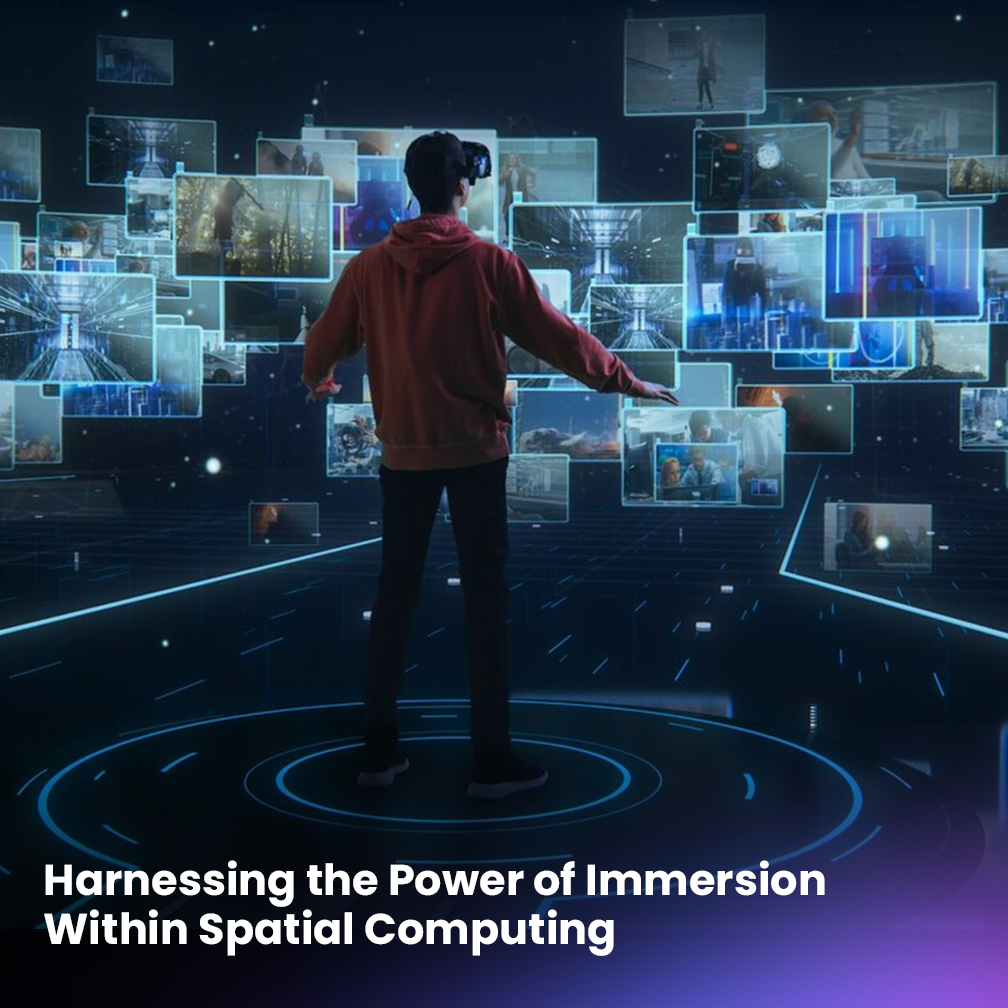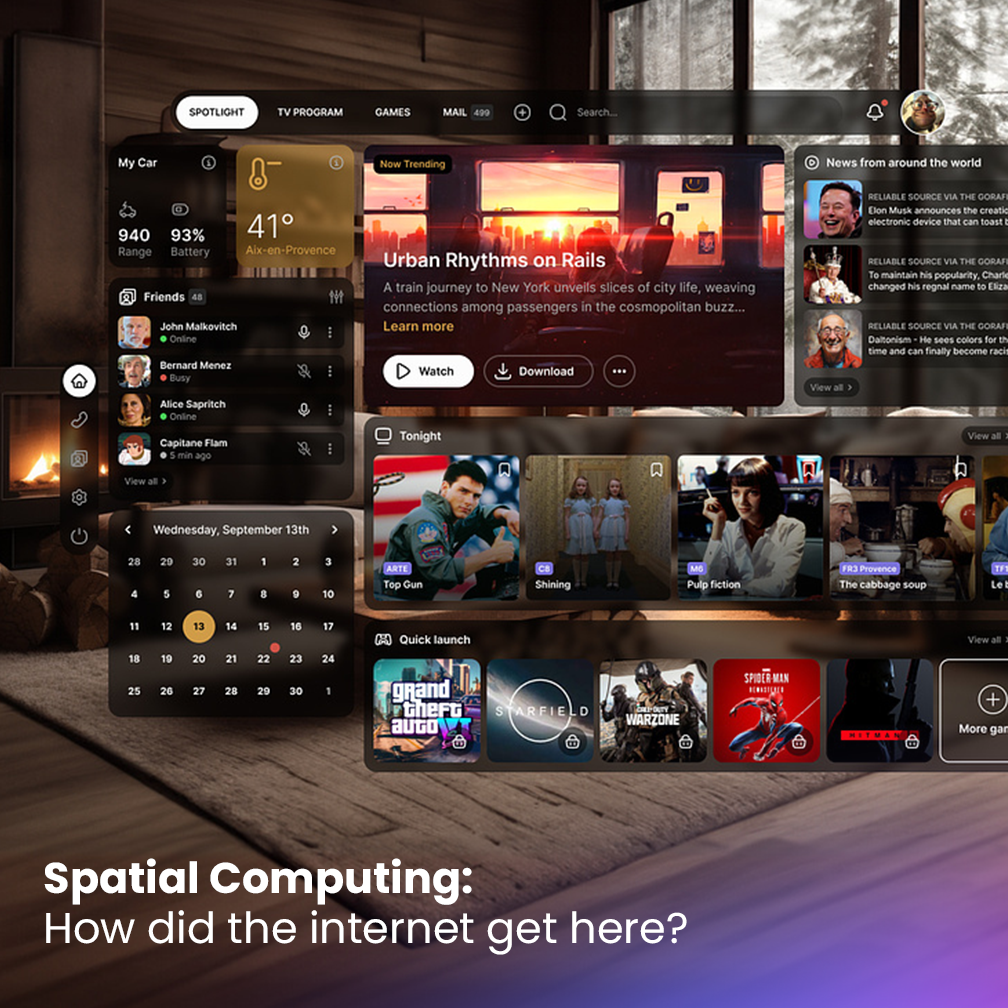The Future of Money: Spatial Computing’s Virtual Economy

Estimated reading time: 4 minutes
Spatial computing is an ever-evolving digital space, and with it comes new opportunities for the exchange of goods and services.
This type of exchange takes place within a virtual economy, which exists entirely within spatial computing. In this blog post, we will explore the virtual economy of spatial computing and what it means for our future financial landscape.
We will cover its potential to revolutionize how people interact with each other online as well as purchase goods and services, as well as the principles that must be adhered to in order to ensure success and sustainability.
Finally, we will discuss the potential implications of a fully functioning spatial computing economy on our everyday lives.
Table of contents
What Is a Virtual Economy?
A virtual economy is a type of digital economy that operates within the spatial computing and features its own currency, goods, services and rules which are established by the developers of spatial computing. This type of economy can be used to facilitate transactions between players in a game or other online environment and allow users to purchase unique items or services. It has the potential to revolutionize the way people interact with each other online, as well as how they purchase goods and services.
Benefits of Spatial Computing’s Virtual Economy
Spatial Computing’s virtual economy offers various benefits such as allowing for more secure and efficient transactions.
It also allows for faster payments and more anonymity since users do not have to provide personal identification information in order to complete a transaction.
Additionally, it enables users to purchase goods or services from anywhere in the world without having to go through a physical store or other intermediary.
Principles of a Successful Virtual Economy
In order for spatial computing virtual economy to be successful and sustainable, it must adhere to certain principles such as providing users with an enjoyable experience while using spatial computing environment.
Other key components include ensuring that transactions are secure, fair and transparent, as well as allowing for ample opportunities for players to earn spatial computing currency through gaming activities or by purchasing it from third-party vendors.
Implications of a Fully Functioning Spatial Computing Economy
If spatial computing virtual economy is able to reach its full potential, it could have huge implications for our everyday lives.
For example, users could purchase items or services from anywhere in the world without having to go through a physical store or intermediary. Additionally, spatial computing currency may one day be accepted as an official form of payment just like traditional currencies are today.
This would enable people to seamlessly transfer money between different countries and regions without needing to convert traditional currency into spatial computing currency.
Virtual economy and online retail
The spatial computing’s virtual economy has the potential to revolutionize the world of online retail. Through spatial computing currency and other digital payment methods, users can purchase goods or services from anywhere in the world without needing to go through a physical store or intermediary.
Additionally, spatial computing payments provide more security and anonymity than traditional forms of payment since users do not need to provide personal identification information.
For retailers, having access to spatial computing payments opens up new opportunities for selling their products and services on a global scale with minimal infrastructure costs. Customers also benefit due to the convenience of being able to make purchases from any location at any time.
Spatial computing currencies are especially beneficial for international transactions as they eliminate the need for costly currency conversions between different countries and regions.
Spatial computing’s virtual economy has the potential to revolutionize online retail as we know it. With its secure, convenient, and global payment platform, spatial computing currencies offer an exciting new way for customers and businesses alike to interact with each other on a digital level.
As spatial computing technology continues to evolve, more opportunities are likely to arise for retailers who embrace this emerging form of payment.
Overall, the spatial computing’s virtual economy has enormous implications for how people conduct transactions and interact with one another online. By providing users with a secure and anonymous payment system that is easily accessible from anywhere in the world, spatial computing payments could revolutionize the world of online retail in the coming years.
Conclusion
The spatial computing’s virtual economy offers many opportunities for how people interact with each other online and purchase goods and services.
With proper implementation, this type of economy could revolutionize how we use digital currencies and open up new opportunities for global commerce.
In order to ensure success, spatial computing developers must adhere to certain principles such as providing users with an enjoyable experience while using their platform, as well as making sure transactions are secure and transparent.
If spatial computing virtual economy is able to reach its full potential, it could have huge implications on our everyday lives.








